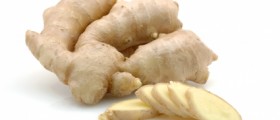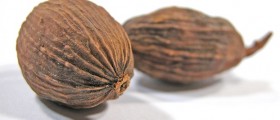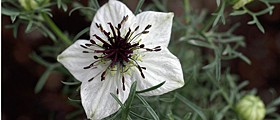
Chamomile is considered to be one of the most beneficial and efficient herbs in the world. It is used mainly as an herbal tea or tisane, for both its medicinal and relaxing effects. It is also very appreciated for its mild fragrance.
About chamomile
Matricaria recutita is the plant whose flowers are used to make chamomile tea. This plant is also called German chamomile, and it can be spelled alternatively as camomile.
It may sound strange, but this herb is often found in places like landfills or near the roads. This is not because it prefers soiled and dusty environment but because it seed needs open soil.
Chamomile is found all over Europe and in parts of Asia with temperate climate. It also grows in temperate North America and Australia.
This herb has been used since the ancient times for many medicinal purposes. Ancient Greek, Romans and Egyptians highly appreciated chamomile for its soothing effect on the nerves, as well as for its antiseptic and antibacterial properties.
Today it is one of the most widely used herbal remedies, enjoyed by millions worldwide.
Chamomile tea is made of dried flowers of the plant, and it has light yellow color and mild aroma.
Health benefits of chamomile
Chamomile has antiseptic, anti-allergenic, anti-inflammatory, anti-bacterial and sedative properties. It is often used to treat inflammatory conditions, especially those of gastrointestinal tract, like heartburn, indigestion, diverticulitis, flatulence, bloating, stomach ache and inflammatory bowel disease. It also alleviates menstrual cramps and pain.
Because of its anti-spasmodic properties, this herb is used as a muscle relaxant and mild natural sedative. It promotes relaxation of the brain and the nervous system, which is why it is recommended for people who suffer from anxiety and similar disorders. Many people drink chamomile tea before bedtime and some use it to treat insomnia.
Chamomile tea can be consumed to relieve different types of pain, especially headache, toothache and earache.
People who suffer from skin disorders, such as eczema, rashes, allergies, boils, wounds, dermatitis, acne and blisters can benefit from topical application of chamomile tea.
Chamomile has great antibacterial properties, and it is particularly effective against streptococcus and staphylococcus.
Moreover, this herb can provide relief for Crohn’s disease, morning sickness, colic, cold, conjunctivitis, hemorrhoids, teething, ulcerative colitis, mouth sores, ulcers and rheumatic problems. It is also a great remedy for gingivitis and other problems associated with gums.
Chamomile tea can be used on the hair too. It soothes itchy scalp, fights dandruff and gives hair a nice, light shine, especially on blonde hair.

















Your thoughts on this
Loading...